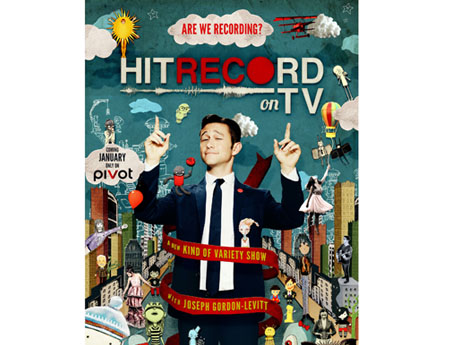As Demo Groups Go, These Folks Are Money

The smarter way to stay on top of broadcasting and cable industry. Sign up below
You are now subscribed
Your newsletter sign-up was successful
Reaching Millennial viewers is no longer kid stuff. The generation—born between 1980 and 1995—has grown up and now represents the bulk of the young adult demographic marketers seek out most.
“Twelve years ago, millennials were important to MTV, Coke and Pepsi, Nike and Adidas,” says Scott Hess, senior VP, human intelligence at media agency Spark. Hess says he’s recently been asked to make presentations about millennials to marketers in the banking and hospitality industries, even the most buttoned-up packaged goods companies. Automakers want to understand their notion of luxury to prepare the next generation of Infinitis and Mercedes-Benzes.
“They are, by virtue of being 80 million strong, a colossal market force,” Hess says. “They’re entering their prime earning and consuming years.”
That makes them important consumers to the television business. Millennials have been known for group behavior, and that’s carrying over as they become heads of households. Their families tend to watch as a unit, with the number of kids with TVs in their room declining, according to Sharalyn Hartwell, executive director of Magid Generational Strategies.
“We’re hearing a lot about millennial parents taking great pride in introducing their own childhood favorite TV programs and movies to their children,” Hartwell says.
She points to research showing that 54% of kids with millennial parents say those parents are “very involved” with deciding which TV shows they watch, compared to 49% with Generation X parents. Also, 70% of millennial moms say they regularly watch kids’ shows with their children, compared to 64% of Xer moms.
For Turner Broadcasting, whose Adult Swim is a perennial hit with the 18-34 demo, keeping up with millennials is crucial. The company recently completed a research project with its Time Warner siblings HBO and Warner Bros. “What we’re seeing is that the vast majority of millennials still definitely rely on traditional sources of television on a regular basis. But they’re what we’re considering as TV omnivores, where they’re really more likely to use a variety of sources beyond TV to consume video content,” says Jeff Grant, senior VP of research at Turner.
The smarter way to stay on top of broadcasting and cable industry. Sign up below
“Certainly the digital revolution has made them different. They were born on multiple screens,” adds Tanya Giles, executive VP, strategic insights and research, Viacom Entertainment Group, TV’s quintessential youth business. “They also are used to having choice, used to having their opinions heard, used to being listened to.”
Comedy Central works to attract millennials with a fan engagement department and shows such as Tosh.0 that air videos submitted by viewers. Knowing how to talk to fans benefits advertisers, according to Don Steele, senior VP, fan engagement/ multiplatform marketing, at Viacom’s Comedy Central. For the movie Thor: The Dark World, the net put up exclusive video of actor Tom Hiddleston, who plays the part of supervillain Loki and has a big following on Tumblr. “We put our content from the branded marketing side into that environment in the right way, and it became a very popular video with tons of shares,” Steele says.
Given millennials’ digital habits, there were some who thought this would be the generation that killed off old media, but Spark’s Hess says that hasn’t proved true, with digital adding to the time spent watching video. And television still works as an ad medium.
“We’re about to launch [a breakfast menu] with Taco Bell, and I can assure you we’re going to buy traditional 15s and 30s. But we’re not going to do that in a vacuum,” he says.
Still Competition
Hess adds that the MTV’s of the world now face more competition than ever both from digital companies that are getting into video and new networks aiming at millennial viewers.
One such network is El Rey, which is counting on content from network owner/filmmaker Robert Rodriguez to lure both millennial viewers and advertisers. The network already has General Motors locked in and integrated into the upcoming series From Dusk Till Dawn, says Michael Finn, senior VP ad sales. With Rodriguez in charge of content, advertisers can be involved more deeply and have branded content available for other platforms. A beer deal is near, Finn adds.
“We don’t look at [millennials] as a demographic. We look at them as a group of people who really want to particulate,” says John Arianas, executive VP of ad sales and partnerships at Pivot, which also launched in 2013. That can be good business for brands, he says, pointing to a study Pivot did with ad agency TBWA Chiat/Day that found 75% of millennials would support a brand if it cared about a cause they favored. When a marketer like Hyundai sponsors a Pivot series such as Joseph Gordon-Levitt’s HitRecord, it not only airs spots in the show but gets original branded content that airs on the network.
“This is totally the beginning of the horse race for milliennials as adults,” says Hess. “There is no clear-cut answer as to who’s going to be the winner at this point.”
Jon has been business editor of Broadcasting+Cable since 2010. He focuses on revenue-generating activities, including advertising and distribution, as well as executive intrigue and merger and acquisition activity. Just about any story is fair game, if a dollar sign can make its way into the article. Before B+C, Jon covered the industry for TVWeek, Cable World, Electronic Media, Advertising Age and The New York Post. A native New Yorker, Jon is hiding in plain sight in the suburbs of Chicago.

